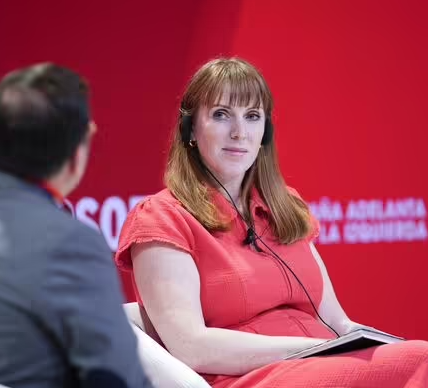EXCLUSIVE: Groups of drug addicts are abusing substances and sleeping rough in the super posh area.

Groups of drug addicts have been accused of anti-social behaviour 24 hours a day. (Image: Jeremy Selwyn)
A deadly combination of drugs is turning one of the UK’s poshest neighbourhoods into a crime-ridden zombie hotspot. Locals in Westminster, London, where house prices have been an overall average of £1.5million over the last year, according to Rightmove, have been left petrified by the drug users who leave human faeces and urine in communal areas at night. During the day, the addicts – off their faces on a deadly mix of crack, spice, and heroin – scare locals and tourists away with their slumped over zombie-like appearance, with some even pictured sleeping on the steps of the Archbishop’s House – the residence of the Roman Catholic Archbishop of Westminster, currently Cardinal Vincent Nichols.
Local police say that dealers have cut the price down to just £5 a hit, which is fuelling the outbreak.
Residents are terrified to leave their homes, fearing attack, as dealing is done in plain sight, and private security monitors the area to move people on. Substance abusers allegedly break into a nearby housing association block, run by L&Q, and loiter in the communal areas, urinating, defecating and vomiting.
A Police Community Support Officer told the Express: “There’s a lot of availability of drugs, and the prices are much lower than you’d historically expect.”
He added that a hit can cost as low as £5, with the highest amount paid just £10.
This is paid for by shoplifting, the officer said, and he added: “A lot of them still qualify for universal credit and other payments associated with their [health] conditions.
“There’s a kind of low level crime spin off from these people, a lot of anti-social behaviour that we have to deal with, and people are increasingly frustrated with.”
The officer described how there is violence amongst the rough sleepers, who “squabble over money”.
“They’re unstable people,” he added.
“The focus is trying to get the dealers [but] there’s always someone else willing to come in and supply.”
It is thought that low-level dealers operate in the area on behalf of “more senior” individuals, who don’t necessarily live locally.
“They come from other places,” the PCSO said.
“Off footprint, but not very far away. They run a series of distributors locally.”
The homeless themselves are used as runners if “trustworthy”, and there is “some evidence” of them being paid in drugs instead of cash.

Westminster Cathedral is modern by London’s standards. (Image: Jeremy Selwyn)

Locals are afraid to leave their own houses. (Image: Jeremy Selwyn)
John O’Hagan, 76, has lived in the same housing block in Francis Street since 1986.
He has noticed the situation has worsened over the past three months, and does not buzz people into the building from his flat unless they can name themselves as someone he knows.
Others, however, are “still trustworthy”, and the former House of Commons librarian, originally from Durham, said rough sleepers kick in the entrance.
The front gate, he also pointed out, cannot be closed properly, and “you might as well put a piece of string” across the back entrance as an existing barrier does not deter groups of drug users.
On Wednesday, there was a male and female in the communal stairs of the block, Mr O’Hagan told the Express, who were “quite abusive” to one of his neighbours.
The woman vomited in the lift, which was still there and had not been cleaned.
“It stinks,” he said.
The stairs are also used as a toilet, he alleged, for both urinating and defecating.
On L&Q, the pensioner said: “As long as they get their rent, they don’t care.”
The peeved resident then added that, due to waiter leaking, some flats at the top of the building have been left vacant, and people off the street have been using them.
He noted that new CCTV had been installed, but questioned as to whether it was being monitored.
There was recently a meeting of local residents and a panel, which included the area’s Labour MP, Rachel Blake, and had an angry atmosphere.
There has been “absolutely nothing from her”, Mr O’Hagan said.

John O’Hagan says rough sleepers break into his housing association block. (Image: Jeremy Selwyn)

The Express was told the spice, crack and spice are abused by people in the area. (Image: Jeremy Selwyn)
A private security guard was keeping an eye on the luxury departments opposite the cathedral in Ambrosden Avenue.
He said, wishing to remain anonymous: “They take the drugs and loiter around here.
“They sometimes fall on the roads and sleep here. It’s just their normal routine.
“Most of them congregate on the stairs and sleep there and disturb the residents. They are very afraid when crossing this street. It’s very disturbing.”
Locals even fear being attacked, the guard said, adding that the addicts also have “very dangerous dogs”.
He has to move groups of people along three or four times a day, and sometimes calls the police if they prove stubborn.
However, they “do not come”, he claimed.
Pointing out some plant pots that had been placed on some of the steps to prevent loiterers, the guard added: “Children pass by and see them taking drugs. It has a chilling effect.”
The Express approached one man opposite the cathedral, and was told: “Bye-bye. I’m not going to talk to you.”
Another was sat in Victoria Street, head bowed and seemingly under the influence of a substance.
He said he had been on the streets for 15 years after his home caught fire.
The man denied having used drugs himself.
A bit further along was Mark Webster, 58, who had been on the streets for just under 15 years, after his partner kicked him out.
Mr Webster, who is from Leeds and was recently discharged from hospital, lamented at the drug takers near the Cathedral, calling the situation “ridiculously unsafe and frightening”.
The former alcoholic said: “This is where I sit every day at Greggs, because I feel safe, and I’m looked after.
“Drugs are cheap and easy to get wherever you go. You can move away from drugs, and wherever you go, you’ll get the next drug.

Mark Webster is sleeping rough on London’s streets. (Image: Jeremy Selwyn)
“I’ve been lucky, I’ve never taken heroin. I’m an ex-alcoholic, which I’m finding hard now, but I’m 58 years old and on my last legs.
“I sit here begging, putting myself into a hotel on a night, if possible.”
Mr Webster, who stays in the Victoria area all the time, claimed that the people who abuse substances locally are “not homeless” and live in hostels, choosing to sleep outside all of the time in order to earn money and acquire drugs.
“They’re taking everybody’s place, basically. There are a lot of homeless people who are desperately in need.”
He also said: “There’s always violence between them, and it’s all over drugs.
“It’s them that’s making it dangerous. London ain’t dangerous.
“I want to be put in a safe place, but I can’t. They choose to be out here.”
He added that “the police don’t seem to care”, and they are “quick enough” to move him on, but not so with the drug dealers.
In 2020, it was reported by the Pan-London Homeless Hotel Drug and Alcohol Support Service (HDAS) that 41% of people experiencing rough sleeping in London had “drug misuse needs”.
In 2024, the Government said that Westminster has the highest number of people sleeping rough in the country “due to the availability of services, relatively safe and dry areas to sleep, presence of existing rough sleepers and access to drug markets”.
Overall, more than 13,000 people were seen sleeping rough in London in 2024/25 – which the Trust for London highlighted as the highest on record, and almost four times higher than 15 years ago, and a 10% increase on the previous year.

Sadiq Khan insists London is ‘one of the safest major cities in the world’. (Image: Getty)
A spokesperson for Sir Sadiq Khan, who is the Police and Crime Commissioner for London as well as its Mayor, said: “London is one of the safest major cities in the world and the Mayor is working closely with the Met, communities and partners to ensure Westminster and every part of our city continue to be safe and welcoming for everyone.
“But we know there is more work to do, which is why with City Hall funding, the West End will see a 50 per cent increase in the number of police officers on the beat and an additional 90 police officers working in new or enhanced town centre teams in hotspot areas.
“These officers will focus on tackling antisocial behaviour, phone robbery and shoplifting, putting high visibility policing at the heart of fighting crime and rebuilding community confidence and trust as we continue to build a safer London for all.”
A spokesperson for the Diocese of Westminster said: “We share residents’ concerns about the level of anti-social behaviour in the area and are working closely with the local authority and police to support a stronger police presence. In the meantime, we encourage all residents to continue reporting any illegal activity to the police, as this helps build the case for further action.
“At the same time, we are aware of the complex and sensitive situation involving groups of people around Westminster Cathedral, including individuals who are homeless and others who may be seeking asylum or fleeing conflict. Those who find shelter here cooperate with the needs of the Cathedral.
“We remain in close contact with local authorities and support agencies to explore appropriate and compassionate responses. Where we are able, we are offering assistance, including signposting individuals to relevant services. The Catholic Church has two centres close by where homeless people find support.”
Matt Foreman, Executive Director, Customer Services at L&Q, said: “We are aware that there has been an increase in anti-social and criminal behaviour in the area surrounding Coburg Close. We are working closely with the police, Westminster Council and other local partners to tackle these issues. I’m sorry for any concern and inconvenience experienced, and I want to reassure L&Q residents at Coburg Close that together we are working hard to make things better.
“In terms of our homes at Coburg Close, we are putting in additional measures to improve security of the blocks. We are looking into installing additional CCTV, which we hope will provide further reassurance for residents and also help provide evidence for the police so they can take action against any criminal activity.
“In addition, we are improving the security of the front and back entrance doors and raising the height of the rear fence and gate to help stop anyone trying to gain unauthorised access to the building. We are also visiting the property daily to carry out additional cleaning.
“Our team is on site on a regular basis to monitor the situation, identify any further improvements we can make, and continue working closely with residents, listening to their concerns and offering any further help and support they might need.”
A Metropolitan Police spokesperson said: “We recognise concerns around anti-social behaviour and take reports extremely seriously. That is why we have dedicated Safer Neighbourhood Officers who help the community feel safe in and out of their homes.
“If anyone witnesses illegal activity or antisocial behaviour we encourage them to report it so we can take action, either through 101 or 999 in an emergency.”

